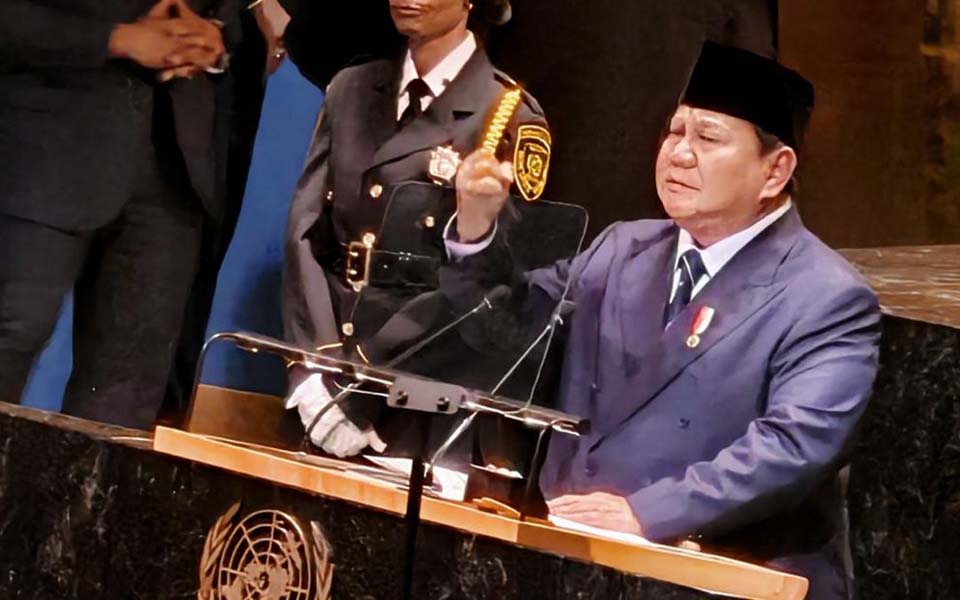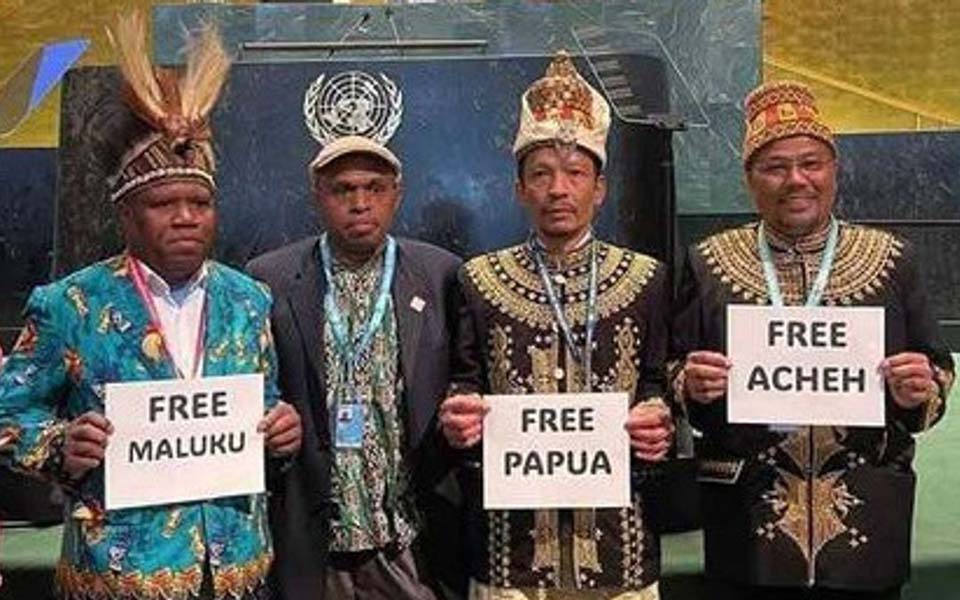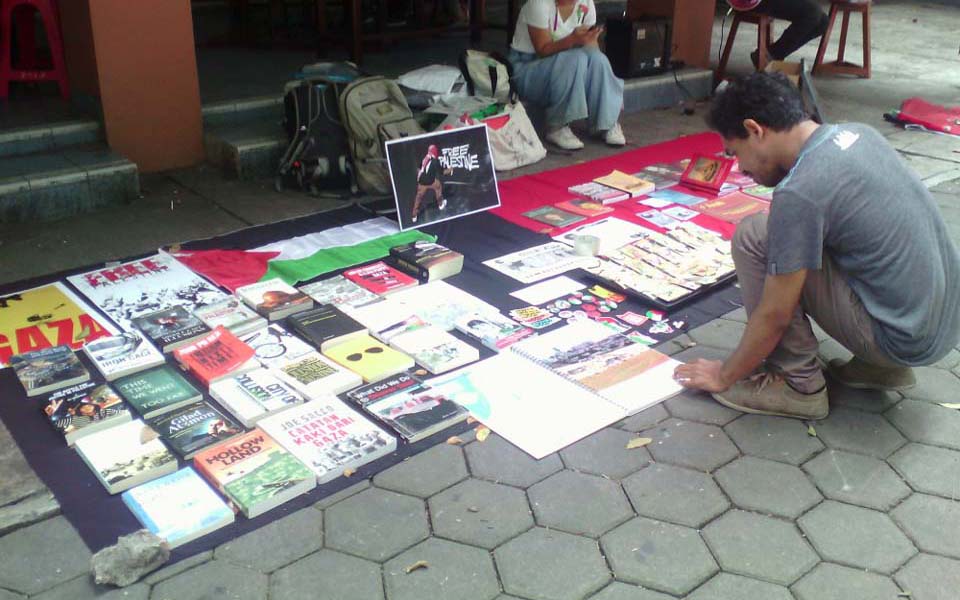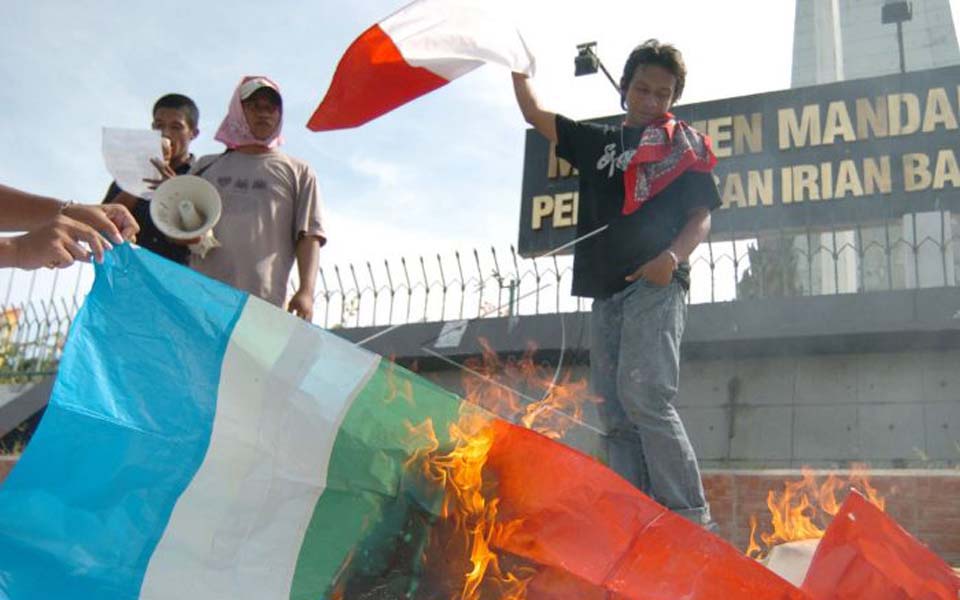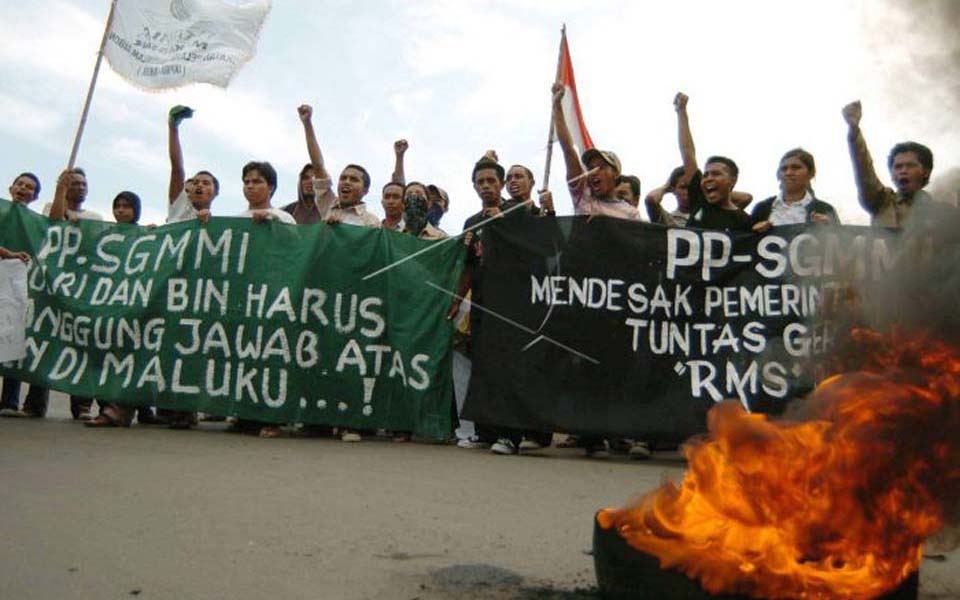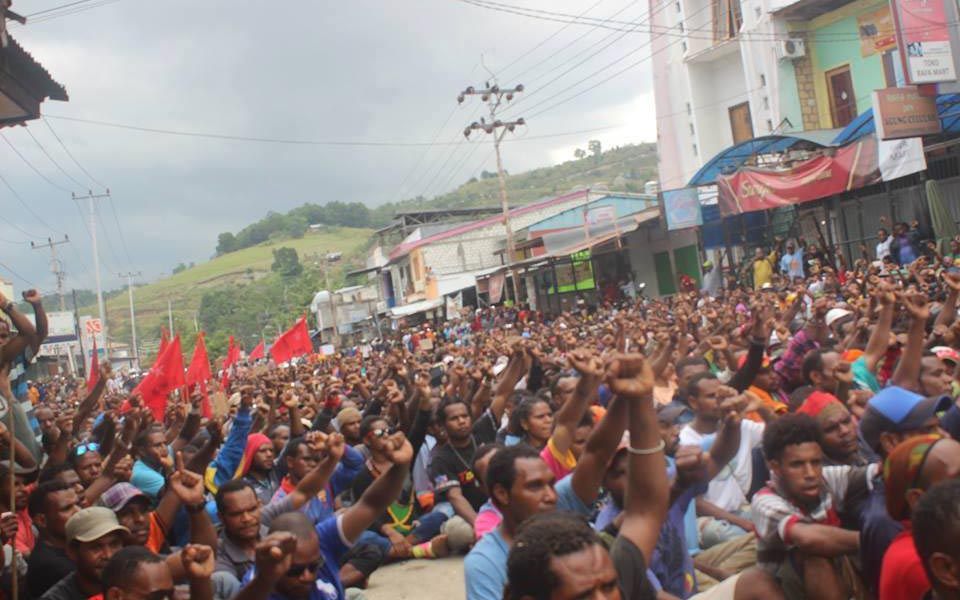Libby Qahtany – Indonesian President Prabowo Subianto made a number of controversial statements during the general debate session at the United Nations 80th General Assembly in New York on Tuesday September 23.
In his speech, and the author quotes, he said "We reject all forms of violence against innocent citizens. Indonesia reaffirms its commitment to a two-state solution to the Palestinian issue. Only a two-state solution can guarantee peace. We must ensure security and independence for Palestine. However, Indonesia also states that once Israel recognises the independence and freedom of Palestine... Indonesia will immediately recognise the state of Israel", which further emphasises his position on the two-state solution.
The two-state solution is the idea of resolving the Israeli-Palestinian conflict by establishing two coexisting sovereign states: Israel and Palestine. This idea is based on the principle that each nation has the right to self-determination within the same territory, so the international community considers the "fairest" solution is to divide the land into two states. While it may sound simple, this concept is rooted in a long history of colonialism, war and intervention by world powers.
The history of this idea can be traced back to the early 20th century. In 1947, the UN General Assembly passed Resolution 181, proposing the division of Palestine into two states: one for Jews and one for Arabs, while Jerusalem would be under international administration.
This resolution was rejected by Arab countries and most Palestinians as unfair, while the Jewish community accepted it and immediately proclaimed the State of Israel in 1948. Since then, Israel has continued its wars and territorial seizures. Following the Six-Day War (1967), Israel occupied the West Bank, Gaza and East Jerusalem, which were supposed to be part of the territory of a Palestinian state.
Since the 1990s, especially through the Oslo Accords (1993), the two-state solution has been revived as a framework for peace, but its implementation has always been hampered by Israeli settlement construction, failed negotiations and power imbalances.
In practice, the implementation of the two-state solution is often considered fragile and full of compromises. Palestine enjoys limited recognition through the Palestinian Authority, but lacks full sovereignty over its territory, resources and borders. Israel maintains security control and expands settlements in the West Bank, making the establishment of a sovereign Palestinian state increasingly difficult. Meanwhile, the international community is divided: some fully support it, others are sceptical.
This idea was initially proposed by international circles, particularly the UN and Western countries who were seeking a post-war peace process, and was accepted by some Palestinian elites during the Oslo Accords. However, many Palestinians continued to view it as a "forced compromise" that sacrificed the right of return for refugees and the ownership of lost land.
From a humanist perspective, the two-state solution is seen as a pragmatic path to alleviating humanitarian suffering. Humanists emphasise that every human being, both Jewish and Arab, has the right to live in security, freedom and equality.
Therefore, the recognition of a Palestinian state is seen as a crucial step towards a more just peace. However, there are also criticisms: the facts on the ground show that the Palestinian territories are increasingly fragmented and dependent, so that two sovereign states often remain little more than diplomatic rhetoric.
For humanists, a two-state solution is acceptable as a "temporary measure" as long as it is accompanied by a real commitment to human rights, the elimination of discrimination and full respect for the dignity of the Palestinian and Israeli peoples equally.
Marxists however actually see this proposed two-state solution it as a bourgeois illusion, because it covers up the roots of settler colonialism and the structure of global capitalism that supports the oppression of the Palestinian people.
Contemporary Marxist thinker Ilan Pappe often echoes Marxist critiques, calling Israel a settler colonialism project that cannot be resolved simply by dividing the land. For Pappe, the "two-state solution" is mere rhetoric and increasingly impossible to achieve due to the massive expansion of Israeli settlements in the West Bank. He advocates a single, secular, democratic state that guarantees full rights for both Jews and Arabs as a more just solution.
Likewise, George Habash, the founder of the Popular Front for the Liberation of Palestine (PFLP), also rejects the two-state solution. He emphasises that the true solution for Palestine is not the establishment of a mini-state in the West Bank and Gaza, but rather the establishment of a single, secular, democratic state across the entire historical Palestinian territory.
Habash views the establishment of Israel as the result of colonialism and ethnic cleansing. Therefore, the two-state solution is seen as legitimising colonialism by recognizing Israel as a Jewish state on Palestinian land. Habash calls for a one-state that eliminates religious or ethnic biases in defining citizenship.
Such as state must be secular, where Muslims, Christians, Jews and other groups live together with equal political rights. A key component of Habash's vision is fulfilling the right of return to their homeland for millions of Palestinian refugees displaced since 1948. He believes that two states will never fulfil this right. As a Marxist-Leninist, Habash views the Palestinian struggle not only as a national struggle but also as a class struggle against imperialism and global capitalism. A single Palestinian state must be the basis for social justice and anti-imperialism.
On the other hand, Leninists and anti-imperialist Marxists view Palestine as a classic example of an oppressed people. They cite Lenin's principle of self-determination but reject the implementation of the "two-state" principle because it grants formal equality without eliminating material inequalities. For them, Palestinian self-determination is only legitimate if it means the dismantling of the colonial and capitalist structures that support Israel as an imperialist base in the region.
Meanwhile Palestinian thinkers like Omar Barghouti, who is better known as a BDS (Boycott, Divestment, Sanctions) activist, incorporates much Marxist logic into his arguments. He calls the two-state solution a "dead end" because it normalises Israeli apartheid. Barghouti advances a vision of a single, secular, democratic state with full equality, the abolition of apartheid and the right of return for millions of Palestinian refugees, a position often equated with radical Marxist demands for the overthrow of colonialism.
Thus, while humanists see the two-state solution as a pragmatic compromise to alleviate immediate suffering, Marxists view it as a bourgeois trap. For Marxists, the liberation of Palestine is possible only through a regional working-class struggle against capitalism and imperialism, toward a socialist society in which no nation oppresses another. Two states, for them, is merely a "false peace" that perpetuates injustice; what is needed is a total social transformation throughout the region.
Prabowo may have sounded dashing on the UN podium, mentioning Palestine by name, uttering the word "independence," and closing with a sweet promise: Indonesia would recognise Israel, provided Israel first recognises Palestine. It's a rhetoric palatable to diplomats, but incredibly bitter for anyone familiar with history. The two-state solution? That's just a stale recipe from the UN's 1947 convention, flawed from the start. Israel was born not from the table of compromise, but from the blood of expulsion, the Nakba, and settler colonialism that continues to devour Palestinian land.
Humanists would gently persuade him that the two states could coexist peacefully, but PFLP Secretary General Ahmad Sa'adat would laugh bitterly, wondering how two states could be born on land where one side has been devastated by ethnic cleansing. Accepting such a formula would be tantamount to acknowledging the legitimacy of the Zionist colonial project in Palestine. Meanwhile, Pappe would put it more bluntly, stating that two states are merely a myth, a political mirage created to make the world feel clean while apartheid continues.
Prabowo's speech was merely an echo of this illusion. He promised peace, when in reality he was simply extending Israel's time to plant more concrete on stolen land. His statement about "rejecting violence against innocent people" sounds straightforward on paper, but it ignores the fact that colonialism itself is the earliest and most brutal form of violence.
So what is our response? We can join in the applause in the assembly hall, pretending to believe in the two-state formula. Or we can choose a more honest path, stating loudly that there can be no peaceful solution without dismantling colonial structures, without ending Israel's apartheid project. Peace is not about two flags flying side by side, but about who has the right to live in dignity in their own land.
During the session, the UN General Assembly adopted the New York Declaration, promoting a two-state solution. This declaration affirmed that the primary source of violence is not the Palestinian people, but rather the Zionist colonial project, founded from the very beginning on the blood and land of oppressed peoples.
The October 7, 2023 incident, when Hamas militants attacked Israel and killed approximately 1,200 people and took 250 hostages, was just a crack in the edifice of colonial oppression that has oppressed the Palestinian people for decades.
However, Israel's response was not just retaliation, but outright genocide: more than 64,000 Palestinians have been slaughtered through bombing, blockades and systematic destruction, as reported by Newsweek, citing the Associated Press. This fact reveals a stark imbalance: a fully armed colonial state against a colonised people struggling to survive.
And Israeli Prime Minister Benjamin Netanyahu's statement on the illegal settlement of Maale Adumim, "There will be no Palestinian state", is a naked admission that Israel has no intention of seeking peace. Instead, it affirms its intention of permanent occupation and ethnic cleansing.
For progressives and popular movements, it is clear that Palestine is not "fighting" on equal terms with Israel, but rather against colonialism, apartheid and global imperialism. Palestine is a symbol of resistance, and every drop of blood spilled in Gaza is proof that there can be no "two-state solution" within a colonial framework. The only path is the destruction of the Zionist apartheid regime and the establishment of a single democratic state throughout Palestine that guarantees equal rights for all its peoples.
The voting results on the resolution supporting the two-state solution resulted in 142 countries supporting the resolution, 10 countries rejecting it and 12 other countries abstaining.
– Libby Qahtany is an observer of the people's movements.
[Translated by James Balowski. The original title of the article was "Gema Ilusi "Solusi Dua Negara" Prabowo di KTT PBB".]
Source: https://www.arahjuang.com/2025/09/26/gema-ilusi-solusi-dua-negara-prabowo-di-ktt-pbb/





